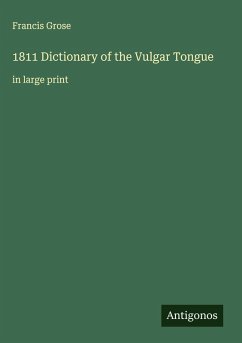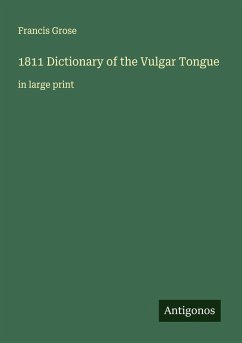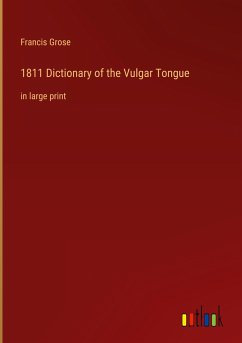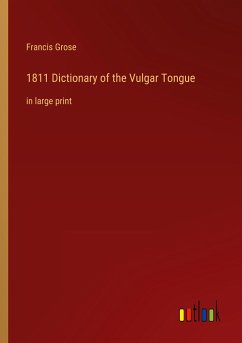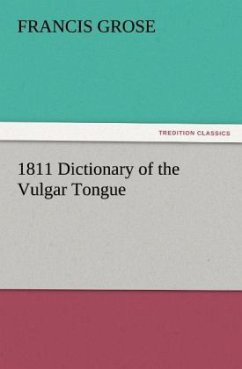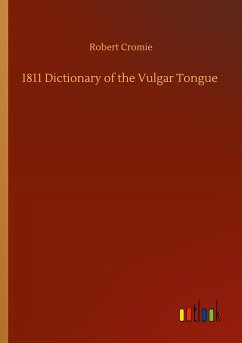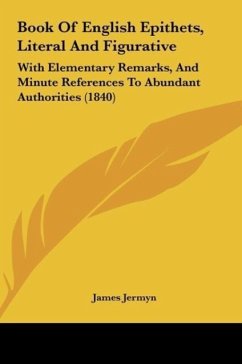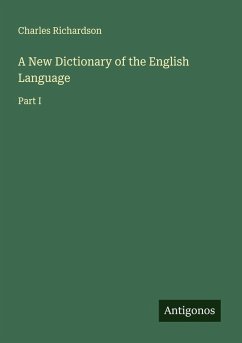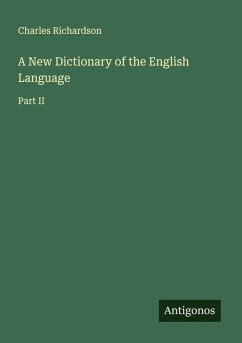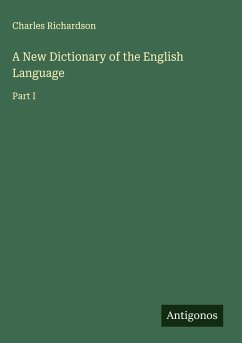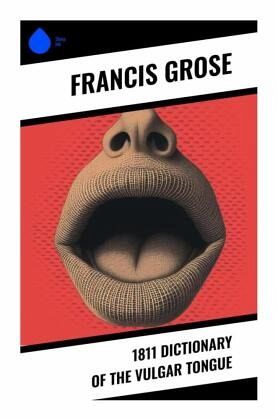
1811 Dictionary of the Vulgar Tongue
Versandkostenfrei!
Versandfertig in 6-10 Tagen
12,80 €
inkl. MwSt.
Weitere Ausgaben:

PAYBACK Punkte
0 °P sammeln!
Published in 1811, Francis Grose's "Dictionary of the Vulgar Tongue" serves as a remarkable compendium of colloquial expressions and slang phrases prevalent in early 19th-century England. Characterized by its amusing and irreverent tone, the dictionary not only catalogs the vernacular of London and beyond but also reflects the social dynamics of the period, highlighting class distinctions and cultural nuances. The work employs a playful literary style that oscillates between wit and critique, making it both a linguistic resource and a cultural artifact, reveling in the diverse lexicon that sha...
Published in 1811, Francis Grose's "Dictionary of the Vulgar Tongue" serves as a remarkable compendium of colloquial expressions and slang phrases prevalent in early 19th-century England. Characterized by its amusing and irreverent tone, the dictionary not only catalogs the vernacular of London and beyond but also reflects the social dynamics of the period, highlighting class distinctions and cultural nuances. The work employs a playful literary style that oscillates between wit and critique, making it both a linguistic resource and a cultural artifact, reveling in the diverse lexicon that shaped everyday dialogue. Francis Grose, an antiquarian and lexicographer, was deeply interested in the nuances of language and culture, having previously explored various aspects of British life in his other writings. His background, including a fascination with the lower classes and their modes of expression, propelled him to compile this extensive dictionary. Grose's keen observational skills and understanding of societal trends provided a fertile ground for documenting the often-overlooked lexicon of the common man, thus offering a candid insight into the lived experiences of his contemporaries. This dictionary is indispensable for anyone interested in linguistics, social history, or the evolution of English. It is not merely a reference work; it is a vibrant tapestry that captures the essence of a lively cultural landscape. Scholars, writers, and general readers alike will find Grose's compilationboth enlightening and entertaining, serving as a window into the richness of British vernacular.




